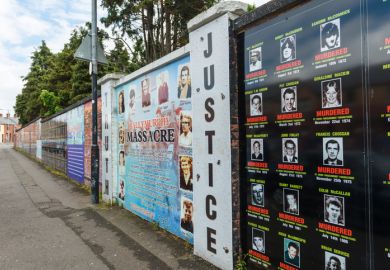We are only a couple of months into 2014, the long-awaited centenary of the start of the First World War is almost upon us, and already the shelves of real and virtual bookshops are filling with new offerings and new perspectives. Perhaps unsurprisingly, many of these books are penned by familiar names; names we have not previously associated with First World War scholarship but whose expertise is now being applied. Frank Furedi’s back catalogue does indicate a clear interest in cultural conflicts and power. His most recent book, last year’s Authority: A Sociological History, spans centuries in its examination of these themes and issues.
First World War: Still No End in Sight taps the same vein. It is an overarching study that maps the trajectory of ideological and cultural movements across the past 100 years, weaving ideas of power politics, authority and culture in and out of a chronological narrative of history. Furedi notes the importance of most of the significant historical events of the period, beginning with the Great War itself, moving through the 1930s, the Second World War, the Cold War, “the culture wars” and the War on Terror, monitoring the successes and failures of capitalism and democracy in each period. But the book’s title is misleading. Any reader keen to learn more about the First World War and its long-term impact may be disappointed, as the war itself is not really Furedi’s central focus here. And while there is clearly no end in sight to the issues of conflict that may be traced back to that war, the imperial politics behind 1914-18 are fading.
Furedi’s approach seems a bit distant, a little disconnected from the real issues of the 1914-18 war. While it does successfully bring together, in one volume, many sociological ideas about the development of the 20th century, the result is more of a list than an analysis. The discussion of these ideas and the conclusions reached feel dry and lifeless, and the principal argument of the book remains abstract, never really engaging with the lived experience of either the war or its political and cultural aftermath. It is hard to connect Furedi’s account with the human side of events that are being so poignantly explored elsewhere this year.
Nevertheless, the book does pose pertinent questions about the current state of ideological and cultural thinking. Furedi’s final arguments about the absence of language to denote modern wars are particularly interesting. He suggests: “Unlike the wars that followed one another since 1914, the current conflict lacks a name. The failure of language is most powerfully symbolized by the continuing reference to 9/11.” This raises important questions about the legacy of warfare in 21st-century culture, especially when it is juxtaposed with what we have come to know as the First World War, the Great War, the 1914-18 War, the War to End All Wars. Language has always been central; there are even too many names for the war that seems to have started it all. Much of the past century has been spent trying to find the language to articulate the horror, experience and legacy of this conflict. Even now, writers set on commemorating the war are falling back on a familiar, but long-discredited, rhetoric of heroism and glory. Furedi seems aware of the need to find an appropriate language to interpret legacy, but ultimately his focus lies elsewhere, and the book’s thesis seems more of an excuse. From our 2014 vantage point, there may yet be no end in sight to works that only loosely engage with this war.
First World War: Still No End in Sight
By Frank Furedi
Bloomsbury, 288pp, £18.99
ISBN 9781441125101
Published 3 February 2014
Register to continue
Why register?
- Registration is free and only takes a moment
- Once registered, you can read 3 articles a month
- Sign up for our newsletter
Subscribe
Or subscribe for unlimited access to:
- Unlimited access to news, views, insights & reviews
- Digital editions
- Digital access to THE’s university and college rankings analysis
Already registered or a current subscriber? Login





